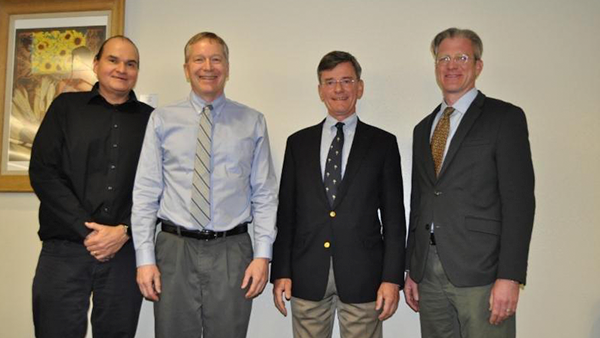Former Minister Christopher Finlayson Discusses New Zealand’s Settlements with Māori
April 9, 2019 - Hannah Farrington

On February 25, UNM School of Law welcomed Christopher Finlayson to discuss New Zealand’s model of settlement negotiations between the country’s government and its indigenous peoples. Finlayson previously served as New Zealand’s cabinet minister for Treaty of Waitangi Negotiations and also as the country’s attorney general.
Finlayson described the legal framework that was put into place by a 1975 New Zealand law that sought to provide redress to Māori tribes for breaches by the New Zealand Government of guarantees set out in the Treaty of Waitangi (a 19thCentury agreement between the British Crown and the Māori). Settlements typically include financial compensation, potential return or protection of tribal lands and cultural properties, and government apologies for harms imposed on the indigenous tribes. As Minister for the Treaty of Waitangi Negotiations, Finlayson oversaw negotiations of such settlements on behalf of the government.
As one example, Finlayson described how in 2014 a groundbreaking agreement was reached that entitled the Whanganui River to a legal identity, a first in the world, because the Whanganui Māori tribe regard the river as their ancestor. Finlayson said the river would have an identity "with all the corresponding rights, duties and liabilities of a legal person." The river will be represented by two officials, one from the Māori and the other appointed by the government.
The continuing legal education lecture was presented by the UNM SOL Natural Resources and Environmental Law Program, the Law and Indigenous Peoples Program, and the Utton Center.
